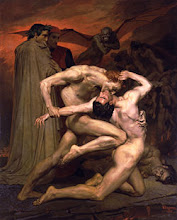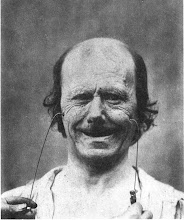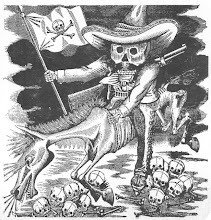I think judges are more reluctant than the communities "standards of decency" to impose the death penalty in rape. The confidence level that a crime has been committed in a murder tends to be higher in a murder than with a rape. With a murder there is usually a body and a murder weapon. It is of course possible to confuse a murder with an accident or a suicide and it is possible to get mixed up about who did it. With a rape, there are the issues of consent and even whether there has been a sexual act.
So if rape can be worse than murder (and it can) why not forge ahead and kill rapists? Well, its the Scottsboro Boys. It was 1931 and the Chattanooga to Memphis freight train was filled with young hoboes, white and black, male and female. There was an altercation that involved the white teenagers being tossed off the train. They complained to the stationmaster who wired ahead and a posse Paint Rock, Alabama stopped the train. They unloaded all the blacks they can find, tied them up, threw them on a flatbed truck and hauled them to the jail in Scottsboro, Alabama.
They were brutalized legally and in the jail system. They were given the death penalty without lawyers. The racism was undisguised. The case became a international scandal and new law was made trying to find a way to keep Alabama from lynching the young men.
Most likely from the examining doctor's testimony a rape was never committed. The girls had been seized by the posse in Alabama and were under pressure to cooperate. The doctor found sperm, but it was not motile and too old to be from the train ride.
As I remember the history I read years ago, had it not been for the American Communist Party the teenagers would most certainly have been hanged. The NAACP was a afraid of the case because of the issue of rape. Other normally activist groups were similarly passive.
A black on white rape was easy to allege, hard to deny and could serve as a great tool to control an under-class. I think this is part of the reticence today to apply the death penalty to race cases.
However, I understand the reluctance of Mr. BB and others to rely on "evolving standards of decency." I have written before here about the risk that evolution can give a bigger or a smaller product at the end of the process. Little horses have evolved into big horses, but big armadillos have evolved into little armadillos. Our sense of dignity historically allowed genocide against different Indian peoples and could well evolve into mass murder and internment camps again.
The confidence placed in the written word is misplaced though. How much is the Article I, the Texas Bill of Rights honored? Was has become of being secure in a persons, etc? Where are those 4th, 5th, and 8th Amendments when we need them?
Original intent is very logical, but are we willing to swallow the pill that comes with it. Our evolving sense of dignity has rejected both banishment and punishment by hard labor. Do we want these back?
The founders' sense of decency allowed slavery and prohibited women the vote. Are we ready to return to those wise days?
And as Mr. WC notes, homosexual acts could bring the death penalty. In fact one Joseph Ross was executed for "buggery" by the state of Pennsylvania in 1785. That's not all, though.
Blasphemy and idolatry were capital crimes in Connecticut, Massachusetts, and New Hampshire. Adultery was capital in Connecticut, Massachusetts and New York. Sodomy and bestiality were capital throughout the northern colonies, even for the animals involved.
Other capital crimes included robbery, burglary, arson, manslaughter, rape, highway robbery, maiming, burglary, arson, witchcraft, counterfeiting, squatting on Indian land, prison-breaking, piracy, perjury, embezzling tobacco, fraudulently delivering tobacco, forging inspectors' stamps for tobacco, smuggling tobacco, stealing hogs, receiving a stolen horse and concealing property to defraud creditors and burning timber intended for house frames.
There were special capital statutes applicable only to blacks. These included burning or destroying any grain, commodities, or manufactured goods, enticing other slaves to run away or "bruising" whites. Virginia feared attempts at poisoning and made it an offense for blacks to prepare or administer medicine.
I hope an execution for most of these offenses would offend the sense of decency for most of us. The colonial and state legislatures, though, gathered a majority to allow an execution for all of these laws.
Can't we acknowledge the sense of decency has and should change? Or should go round up a black pharmacist and kill him to avoid the threat of poisoning?


























_-_Dante_And_Virgil_In_Hell_(1850).jpg)























































3 comments:
And your point?
Ed,
The problem is that evolving standards can also devolve. Once we go down that road, then we can argue that the right of habeas corpus may have been important in 1996, but with threats of terrorism our standard has evolved so that the executive can detain people without recourse or reason. That's why I believe that a Constitutional jurisprudence based on language and intent is the only protection we have against tyranny.
With respect to evolving standards, to the extent that they are evolving, the evolution will normally be reflected through legislative action.
I hate the word intent because it presumes we can possibly know the founding fathers' intent. I have actually read the constitutional minutes for the federal constitution and the original 13 colonies.
I read all of these while reading Blackstone. It is important they all be read at the same time because Blackstone gives the reader an insight into common law at the time.
When the people accepted the Constitution by and through their representatives, what they believed it meant is also part of original intent.
How can we possibly claim to know what liberty meant to the majority at the time. More so than anything else I suspect it meant the right to be left alone without the government interferring in your daily lifes.
I forget at this moment who originally coined the term "ordered liberty." But that is exactly what we have - the free exercise of our inherent freedoms in a way which on balance somehow protects everyone's basic freedoms.
When the scales get out of wack every so often the courts intervene to put them back into balance.
If you look back to the times of the serfs through our eyes, it seems pretty bad. But if you look through the eyes of the serf who had no form of protection and was subject to rape, pillage and murder before the system of protections were put into place by the system of the day, it looks pretty good.
Like every other time the system outlived itself as the need for the protection was no longer in place and the needs of the people expanded. Those in power did exactly what the capitalist state is doing today - fighting for its very existence.
Change is inevitable. I can think of no Supreme Court Opinion which has ever sent us backwards with fewer rights. (Save Texas v. White wherein they found the people no longer had the right of rebellion against even an oppressive government)
As we mature into a more civilized nation we can expand those rights to be more inclusive and understanding of those who differ from ourselves.
While the people may be intolerant to expanding rights, like gay marriage - I never see the NRA allowing the judiciary to abolish habeas corpus. Just this term the Supreme Court made it clear it is as strong as ever.
Maybe soon people will see opponents of freedom and pick pockets are the ones who keep these issues alive so the people are distracted from the bread and butter issues which more directly impact their every day lives.
The day emotions come to rule what the Supreme Court should and should not do is the day we can declare liberty dead in the US.
The rape decision was an emotional case. I doubt anyone would give the death penalty to a father who murdered their child's rapist, but in law this is where emotion ends. Juries can give mercy at will, judges need to be rational and not allow emotion to guide their opinions. Opinions guided by emotions will certainly lead to tyranny.
Bobby WC
Post a Comment